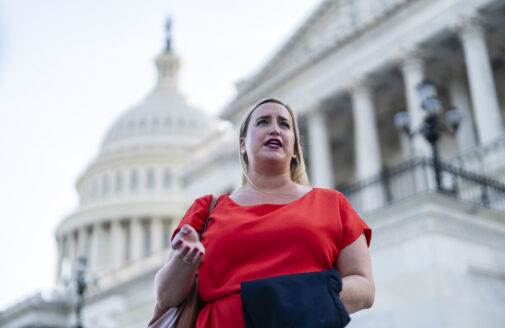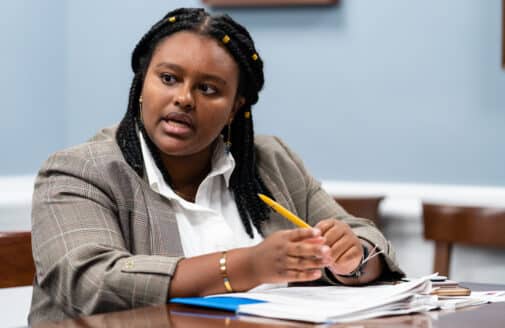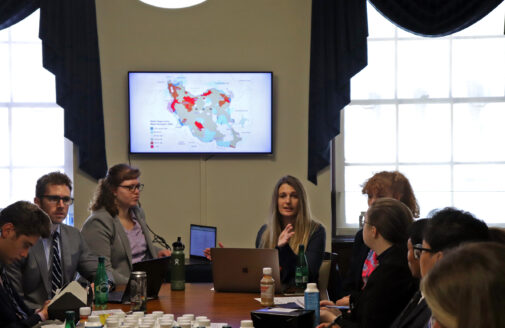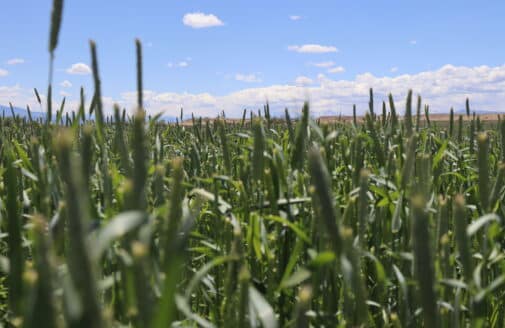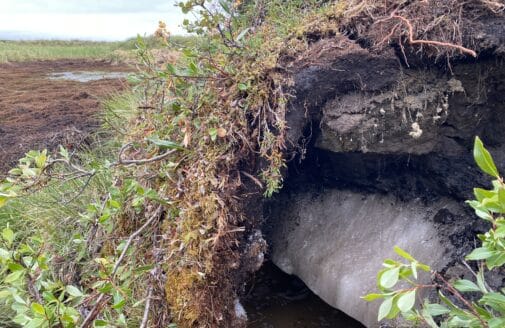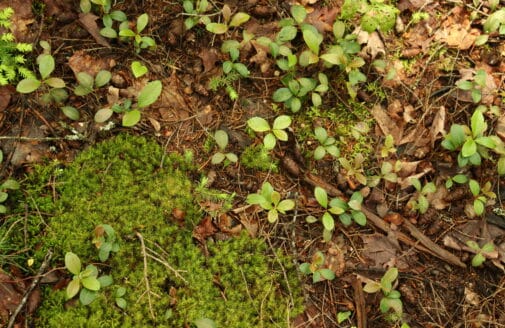Third annual fly-in brings Woodwell Climate’s work to the national policy stage
House and Senate Members join Woodwell Climate staff to build relationships and discuss pragmatic solutions
Woodwell Climate team chats in the hallways of the House of Representatives between meetings.
photo by Tierney Cross
Woodwell Climate’s Government Relations team led the Center’s third annual D.C. fly-in this September, and you might say the third time was the charm.
“It was really impressive to see how we’ve built over the three years of doing the fly-in,” said Laura Uttley, Director of Government Relations. “The scale and scope of meetings, having five of 13 Congressional meetings be with Members themselves, and to have 17 Board members, senior leaders, and scientists participate—it’s just really exciting.”
Over the course of three days, the Woodwell Climate delegation tackled a range of near-term legislative priorities, such as the Natural Climate Solutions Research and Extension Act, standalone legislation that is currently being considered as part of Farm Bill negotiations and was adapted in the House version of the Farm Bill as “soil health research,” as well as longer-term policy development and relationship building.
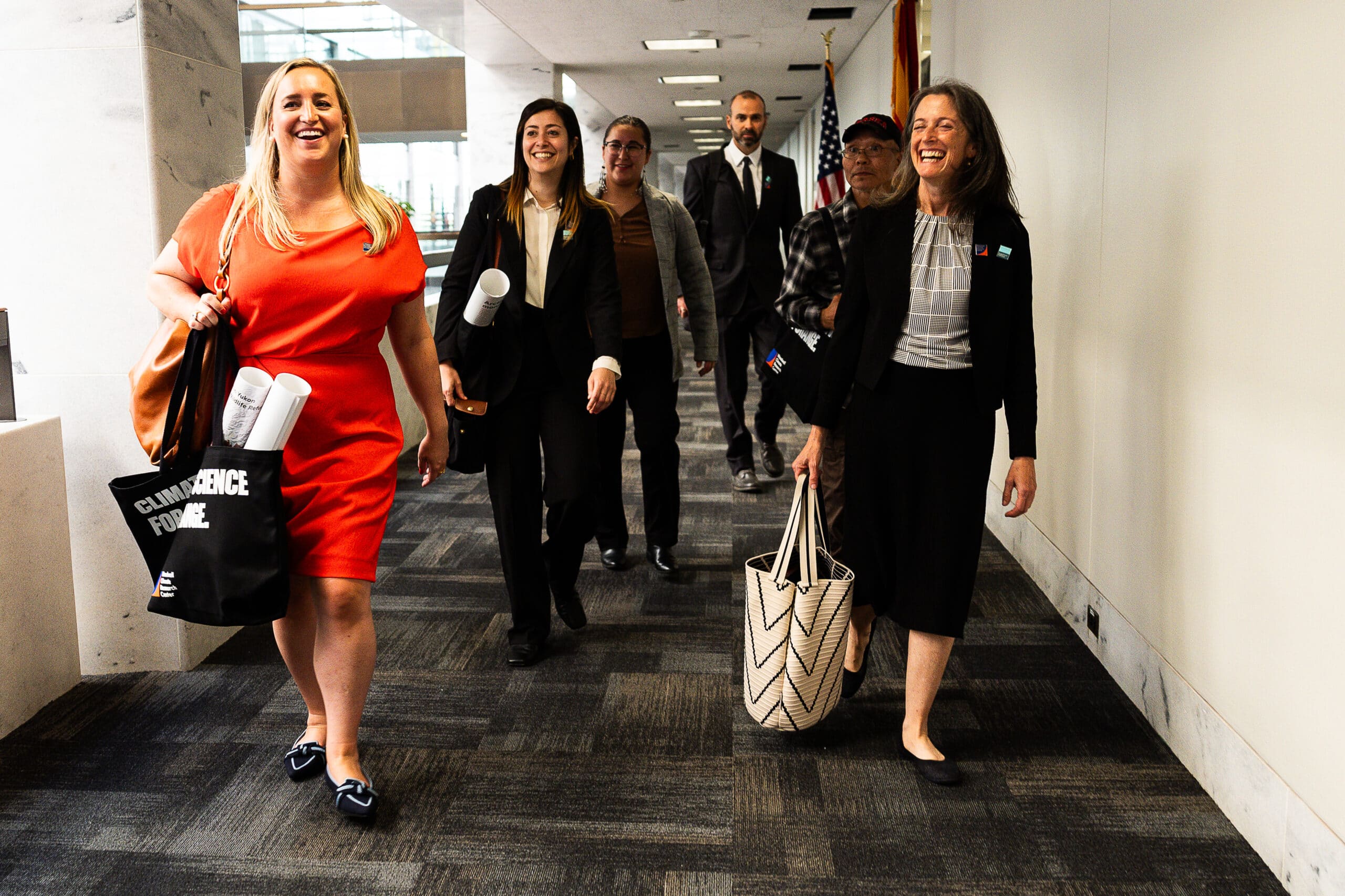
Uttley leads the Permafrost Pathways team to their meetings on the Hill.
photo by Tierney Cross
Engagements spanned the full diversity of Woodwell Climate’s work. Meetings with leadership of the House Climate Solutions Caucus and Conservative Climate Caucus focused on the economic impacts of climate change and the need for expanded national climate services to make risk information available to all communities. A Permafrost Pathways delegation, including representatives of Alaska Native partner communities, shared a range of perspectives on rapid Arctic change with Alaska legislators and the Senate Indian Affairs Committee. One group talked with staff in the office of Rep. Paul Tonko (D-NY) of New York about carbon markets, and with Rep. Bill Keating (D-MA) and Sen. Ed Markey (D-MA) about Massachusetts-based research, including river monitoring and wetland restoration. Woodwell Climate also met with Democratic Whip Katherine Clark (D-MA) and Rep. Pete Aguilar (D-CA), Chair of the Democratic Caucus, to discuss opportunities to advance and protect climate policies, especially as leadership considers agendas for the next Congress.
Across all the sub-teams and meetings, Uttley says three big takeaways stood out:
1. Relationships matter
That Woodwell’s delegation secured thirteen Congressional meetings—five of them with Members themselves, including leadership of key committees and caucuses—is a testament to the Center’s credibility and the depth of relationships that the Government Relations team is building. A summer of high-profile Supreme Court decisions, the end of the fiscal year looming, and a tumultuous election cycle all contributed to a chaotic energy on the Hill in September, and legislators were only in session for three weeks between their summer recess and a break for election activities. Despite those pressures, Uttley says lawmakers and their staff were enthusiastic and engaged.
She attributes that to months (years, really) of relationship building grounded in a “here’s where we agree, and here’s how we can help” approach. An enormous amount of time and thought goes into crafting meeting agendas and materials that meet legislators where they are, address their needs and interests, and highlight common ground and opportunities for progress.
Consistency is also key, Uttley says. While individual Members come and go, and the political climate shifts, Woodwell Climate’s annual fly-in and growing year-round presence in Washington, D.C. are reminders that we are a reliable resource of information, and in it for the long haul.
2. Caucuses and committees are impact amplifiers
Meetings with individual legislators and/or their staff can be incredibly productive, but time is limited. Briefing an entire committee or meeting with leadership of a caucus group can be an effective way to get scientific expertise and policy priorities to many legislators at once. For example, part of the Woodwell delegation met with leadership of the bipartisan Climate Solutions Caucus (more than 60 members), staff for the House Sustainable Energy and Environment Coalition (100 Democratic members), and staff for the Conservative Climate Caucus, which has more than 80 Republican members, all interested in pragmatic climate solutions. These larger groups are also less susceptible to disruption through election cycles, which creates opportunities to work on policy agendas with a longer runway.
3. Accessible information makes a difference
Maps on the table, personal accounts of climate impacts, data tailored to a legislator’s district, and plain language science summaries were all on display during the fly-in, and Uttley says the Center’s commitment to making climate science relevant and accessible is a distinguishing feature that opens doors and builds relationships.
“To be able to find hooks and make climate science accessible for such a range of audiences on so many different topics is really impactful,” Uttley said.
Overall, Uttley said being in the room as scientists, community members, and policymakers —and seeing the energy they all came away with—left her with one overarching takeaway: Change is possible and “the Climate Science for Change motto is actually lived; it’s not just something we say.”




